Is white pepper powder just bleached black pepper? No—it's naturally processed ripe peppercorns with a distinct flavor profile perfect for light-colored dishes. Discover exactly when to use white pepper instead of black, why chefs prefer it for sauces and seafood, and how to store it for maximum freshness. This complete guide answers the top questions home cooks and chefs have about this misunderstood spice.
Table of Contents
- Debunking the #1 White Pepper Myth
- What Exactly Is White Pepper Powder?
- White Pepper vs Black Pepper: Key Differences
- When to Use White Pepper (7 Specific Scenarios)
- How Much White Pepper to Use: Measurements Guide
- Perfect Flavor Combinations for White Pepper
- Storage Tips for Maximum Freshness
- Summary: White Pepper Powder Essentials
Debunking the #1 White Pepper Myth: Is It Just Bleached Black Pepper?
- Myth: White pepper is chemically bleached black pepper.
- Fact: Authentic white pepper undergoes natural processing where ripe peppercorns ferment in water for 7-10 days to remove the outer layer. Chemical bleaching produces inferior quality and isn't standard for genuine products.
- Myth: White pepper has less flavor than black pepper.
- Fact: It has a different profile—more earthy and less sharp—but equally complex. Many professional chefs consider it essential for specific dishes.
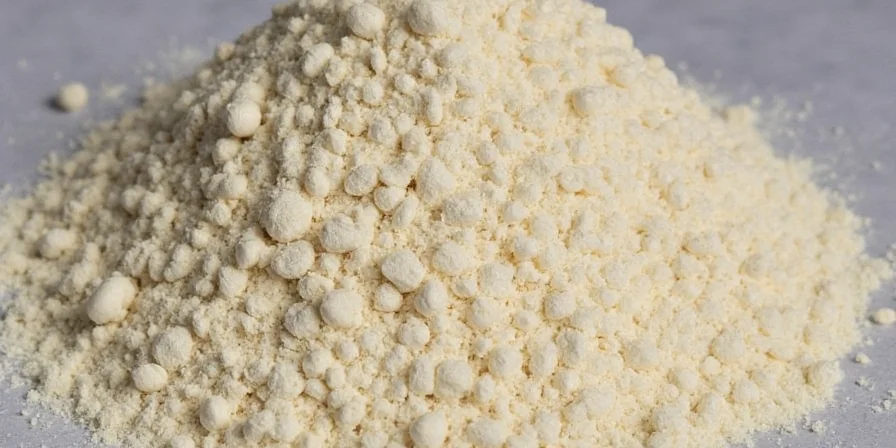
What Exactly Is White Pepper Powder?
White pepper comes from the same Piper nigrum plant as black pepper, but with crucial processing differences. While black pepper uses unripe green berries dried with their outer layer intact, white pepper starts as fully ripe red berries.
The ripe berries undergo a natural fermentation process: they're soaked in water for 7-10 days until the outer skin (pericarp) loosens and can be removed. What remains is the inner seed, which is then dried and ground into white pepper powder. This traditional method dates back to medieval European cuisine where visual presentation mattered in aristocratic dining—black specks were considered unsightly in light-colored sauces and dishes.

White Pepper vs Black Pepper: Key Differences
| Characteristic | Black Pepper | White Pepper |
|---|---|---|
| Origin | Unripe green berries | Ripe red berries with outer skin removed |
| Flavor Profile | Sharp, pungent, citrusy notes | Milder, earthy, slightly fermented |
| Best Used In | General seasoning, dark sauces, grilled meats | Creamy sauces, light-colored soups, seafood dishes |
| Appearance Impact | Visible black specks | No visual disruption |
| Heat Level | Stronger immediate heat | Subtle, building warmth |
When to Use White Pepper (7 Specific Scenarios)
White pepper isn't just for professional kitchens—here are the exact situations where it outperforms black pepper:
- Creamy Sauces: Béchamel, Alfredo, and cheese sauces where black specks would be visible. Use 1/8 teaspoon per cup of sauce.
- Light-Colored Soups: Potato leek, vichyssoise, or cauliflower soup where visual purity matters.
- Seafood Dishes: Enhances delicate flavors without overpowering—try in shrimp scampi or poached fish.
- Egg Dishes: Scrambled eggs, frittatas, or quiches where black specks look like pepper contamination.
- Asian Cuisine: Essential in Chinese cooking for dishes like hot and sour soup and certain stir-fries.
- Light-Colored Meats: Chicken piccata or veal dishes where appearance matters.
- Brunch Dishes: Hollandaise sauce for eggs Benedict—black pepper would discolor the sauce.
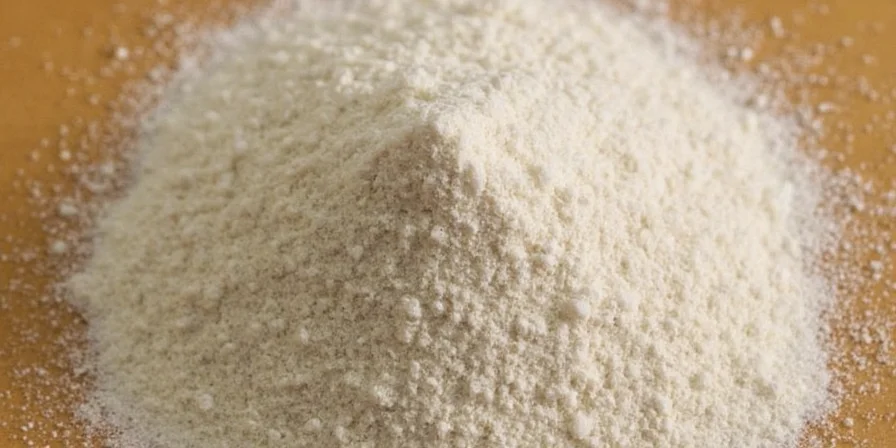
How Much White Pepper to Use: Measurements Guide
Unlike black pepper, white pepper requires more precise measurements due to its different flavor release:
- For 4 servings: Use 1/4 teaspoon (not a "pinch"—measure precisely)
- Add at the end: White pepper's flavor compounds break down with prolonged heat—add in the last 2 minutes of cooking
- For soups/stews: Start with half the amount you'd use of black pepper, then adjust to taste
- For marinades: Combine with acidic ingredients (lemon juice, vinegar) to help release flavor compounds
- Storage impact: Older white pepper loses potency—increase amount by 25% if stored over 1 year
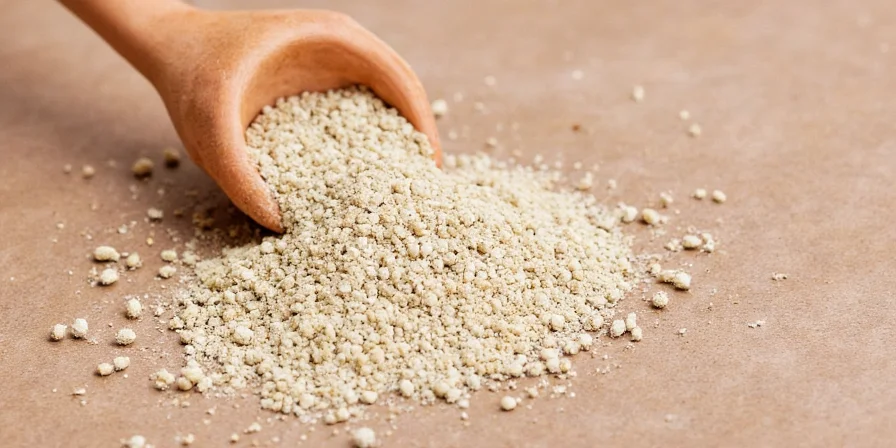
Perfect Flavor Combinations for White Pepper
White pepper creates magic when paired correctly. These combinations deliver restaurant-quality results at home:
- White Pepper + Nutmeg: 1/8 teaspoon each per cup of béchamel for perfect cream sauce balance
- White Pepper + Lemon Zest: 1/4 teaspoon white pepper with zest of 1/2 lemon per pound of fish
- White Pepper + Thyme: Use in a 3:1 ratio (3 parts thyme to 1 part white pepper) for roasted chicken
- White Pepper + Garlic: Add white pepper after garlic has cooked 30 seconds to maximize flavor synergy
- White Pepper + Dill: Essential for Scandinavian gravlax and other cured fish dishes

Storage Tips for Maximum Freshness
White pepper loses potency faster than black pepper. Follow these science-backed storage methods:
- Airtight is essential: Oxygen exposure degrades piperine (the active compound) by 30% within 6 months
- Cool, dark place: Store below 70°F (21°C)—heat accelerates flavor loss by 50% compared to cool storage
- Buy whole then grind: Pre-ground loses 60% potency in 6 months; whole peppercorns maintain freshness for 2+ years
- Freezer option: For long-term storage (1+ years), keep in a vacuum-sealed container in the freezer
- Test freshness: Rub between fingers—fresh white pepper should leave a slight yellow stain and strong aroma
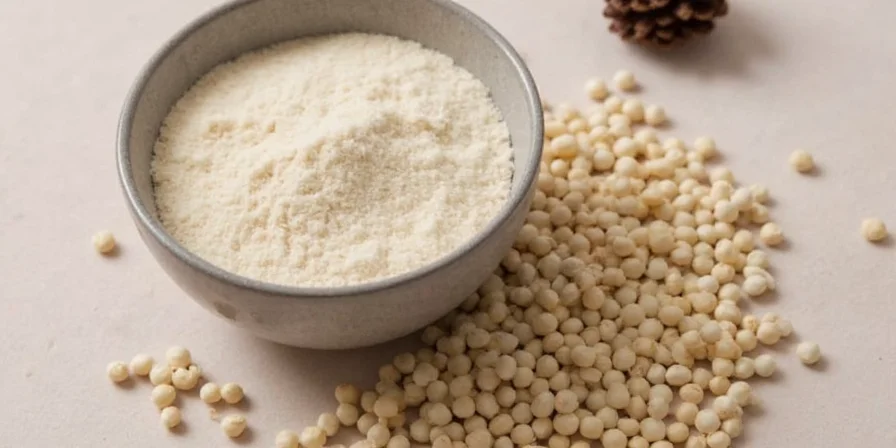
Summary: White Pepper Powder Essentials
White pepper powder isn't a substitute—it's a strategic choice for specific culinary situations. Its natural processing creates a milder, earthier flavor profile that works where black pepper would visually disrupt or overpower. The key takeaways:
- Use when visual presentation matters in light-colored dishes
- Measure precisely—1/8 to 1/4 teaspoon per serving is typical
- Add near the end of cooking to preserve flavor compounds
- Store in an airtight container below 70°F for maximum freshness
- It's not bleached black pepper—authentic white pepper undergoes natural fermentation
Professional chefs reach for white pepper when creating dishes where both flavor balance and visual elegance matter. By understanding exactly when and how to use it, home cooks can achieve restaurant-quality results that impress both visually and taste-wise.

Frequently Asked Questions
Is white pepper made by bleaching black pepper?
No, authentic white pepper undergoes natural processing where ripe peppercorns ferment in water for 7-10 days to remove the outer layer. Chemical bleaching produces inferior quality with off-flavors and isn't standard practice for genuine products.
Why choose white pepper in light-colored dishes?
White pepper provides seasoning without visible specks, maintaining visual purity in sauces, soups, and fish dishes. Its milder flavor profile (30% less volatile compounds than black pepper) prevents overpowering delicate ingredients while adding subtle complexity.
How much white pepper should I use compared to black pepper?
Start with 25% more white pepper than black pepper in recipes, as it has less immediate heat. For precise measurements: use 1/8 teaspoon white pepper per cup of sauce or soup. Always add it in the last 2 minutes of cooking for maximum flavor impact.
How can I tell if my white pepper has gone stale?
Stale white pepper loses its distinctive aroma and develops a flat, dusty taste. Fresh white pepper should leave a slight yellow stain on your fingers and have a noticeable earthy fragrance. When stored properly in an airtight container away from light, it maintains potency for 2-3 years. Replace when it no longer provides noticeable fragrance after rubbing between fingers.

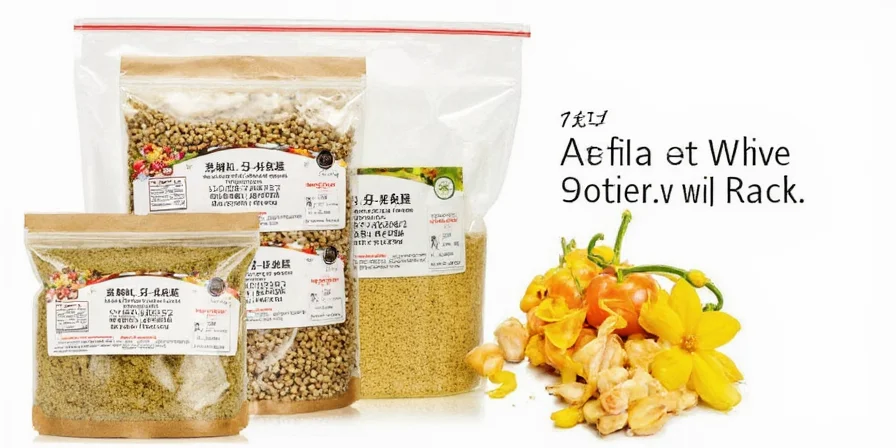









 浙公网安备
33010002000092号
浙公网安备
33010002000092号 浙B2-20120091-4
浙B2-20120091-4